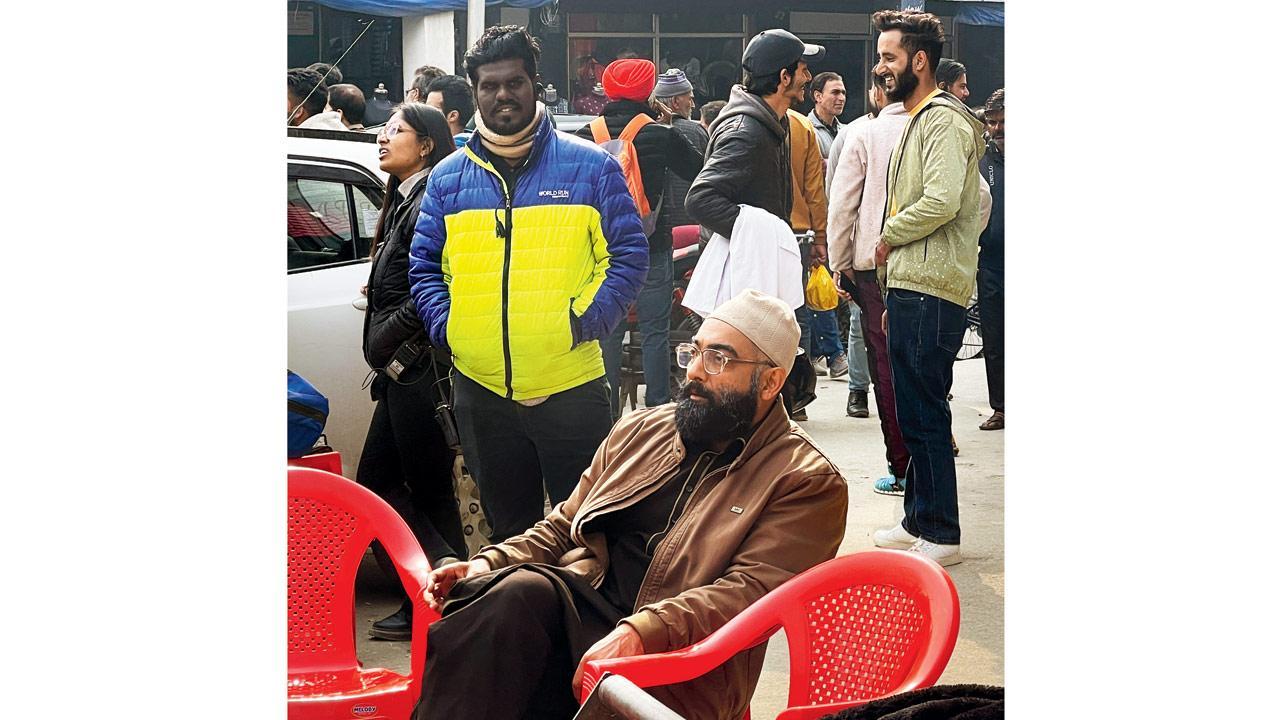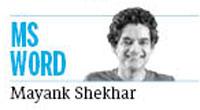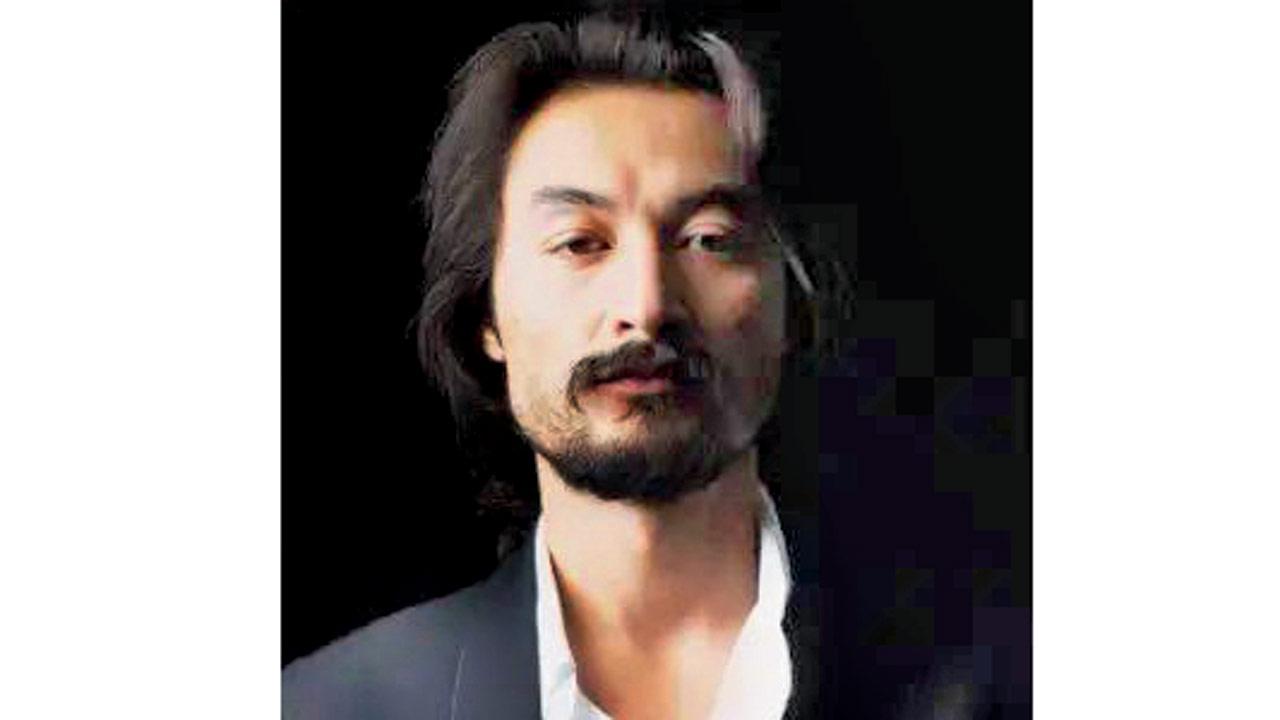Observing Srinagar shoot of Tanaav sequel, that’s dropped on Sony LIV, you’ve gotta ponder over the original Fauda, no?

The Srinagar shoot of the OTT series Tanaav
 An outdoor shooting in Srinagar can be surreal. The shoot’s with the camera, of course, that I’m observing, in the packed Jhelum Complex, in Batamaloo area.
An outdoor shooting in Srinagar can be surreal. The shoot’s with the camera, of course, that I’m observing, in the packed Jhelum Complex, in Batamaloo area.
ADVERTISEMENT
Only, there are guns, both fake (hidden), and real (Tavor X95), while you can’t tell between the two.
Can’t tell either, between actual cops, guarding the location, and undercover agents, who are part of the OTT series (Tanaav S02) being shot—around garment shops named after owners Mir, Hamdan, Qazi, Alif…
I click pix with a crack commando in the shopping complex, dressed in black—only half-sure he’s not an actor on the live set!
At the call of action, actors/extras start running all over the street, once the terrorist-villain learns he’s been entrapped in the marketplace, by counter-intelligence operatives.
Both Srinagar’s shoppers and shop-owners rarely look in the direction of the shoot. Crowd control seems barely an issue.
Maybe it’s decades of living under strife/militancy that’s numbed people to pandemonium. Afternoon life in the marketplace carries on.
As does the particular scene, directed by E Niwas (Shool), placed beside a building’s window, with lead actor, Manav Vij, at the centre.

Cinematographer Quais Waseeq
It’s early November, 2023—any mention of this shoot has been embargoed since. And Srinagar is unusually hot, still. Which is the more pressing, climate-concern that Kashmir is likely to face in the future.
As for now, locals, no matter who/where I meet, tell me their biggest problem is the drug-abuse menace among the youth—it’s ‘Udta Kashmir’.
Terrorism has fatigued them, over time. There’s no turning of the clock, backwards. Unless they speak too soon. Price-rise breaks their backs more. These could be crucial issues, once J&K goes to polls in October, 2024.
Movie/series shoots are repetitively boring affairs, usually. But for the obvious curiosity of onlookers. Unless you chance upon someone interesting. For me, easily, that’s Quais Waseeq, 37. He’s the show’s cinematographer.
Quais is originally from Afghanistan, whose family escaped the Taliban, from Kabul—buying time in Pakistan (Quetta, Islamabad), before they finally landed access to Australia, in 2002.
Which is where Quais, currently Australian citizen, joined film school in Sydney, met his Indian classmate, girlfriend, Himanshi (now wife), and moved to India, with her. Completing an equally surreal circle of sorts, back into the subcontinent.
Quais has shot OTT shows like Duranga (Zee5), 36 Days (Sony LIV). Tanaav producers, Applause, brought him onboard the sequel, to lens Kashmir.
He’s totally unsurprised by calmness among Srinagar folks in the marketplace location: “That’s how normal people, used to being under a shroud of fear, get on with life.”
As for Tanaav itself reminding him at all of Kabul, from his childhood, he says, “Afghanistan was open-war! What’s depicted [on the show], and true for Kashmir, are more sporadic events [of terrorism].”
Tanaav (Tension) is the official remake of Fauda (Chaos)—first made for low-budget, Israeli cable television in 2015. But that broke out into the global mainstream, once Netflix picked it up.
I actually got into Fauda, only after Tanaav—mainly to sense how the desi show has adapted Gaza/Ramallah, Palestine/Israel into India/Kashmir.
It’s almost a direct translation, really; in terms of plot points, plus dialogue.
What the show best retains from the original is actually the quality of performances (Rajat Kapoor, Shashank Arora, Ekta Kaul, et al). Especially Manav Vij, as the brooding maverick, spy-soldier, Kabir, with eyes that kill.
It could’ve been harder for Manav than Lior Raz, who portrays the same role (Doron) in Fauda. Given Lior’s own life experiences with the Israel Defense Forces. Lior is also the co-creator of the Hebrew-Arabic bilingual, Fauda.
Which I stayed away from, the longest, upon being warned that it was a propaganda series. It’s an Israeli POV, alright. That’s not always the same as a polemic—perhaps a reason why Fauda is apparently wildly popular in Arab countries as well.
Why set Fauda in India? Applause’s Sameer Nair tells me, “[The fact] that it’s not a cross-border story for us—it’s really a story of ‘within’.
"The core conflict is between the same people—mostly Indians, but all fellow human beings; some in a grey zone, and some on either side of an ideological divide. The conflict is always about the homeland.”
The ‘tanaav’, as it were, also appears to be driven by individual revenge/vendetta, foremost—with both ends of the mad spectrum, relentlessly playing with their loves and lives. For, what’s political, if not something intrinsically personal, first?
Six episodes of Tanaav S02 dropped over the weekend on Sony LIV. Fauda is set to return for a fifth season. God knows what that’ll be like!
Borders and empathies have been altogether breached with blood, of innocents/children, included—since the Israel-Hamas War took among the goriest turns in history, October 7, 2023, onwards.
Quais reasons, “What Fauda or Tanaav show us is the sheer senseless of war.” He knows this better than most: “I was a clueless child, during the war [in Afghanistan]. My family [on the run] was affected the most. Looking back, I’m just glad to be alive.”
Grabbing a drink, after the day’s shoot in Srinagar, Tanaav’s showrunner, co-director Sudhir Mishra tells everyone, “If what’s going on in Gaza is okay—then absolutely everything in the world is okay; no?” Couldn’t agree more. And it’s still bloody on.
Mayank Shekhar attempts to make sense of mass culture. He tweets @mayankw14
Send your feedback to mailbag@mid-day.com
The views expressed in this column are the individual’s and don’t represent those of the paper.
 Subscribe today by clicking the link and stay updated with the latest news!" Click here!
Subscribe today by clicking the link and stay updated with the latest news!" Click here!







